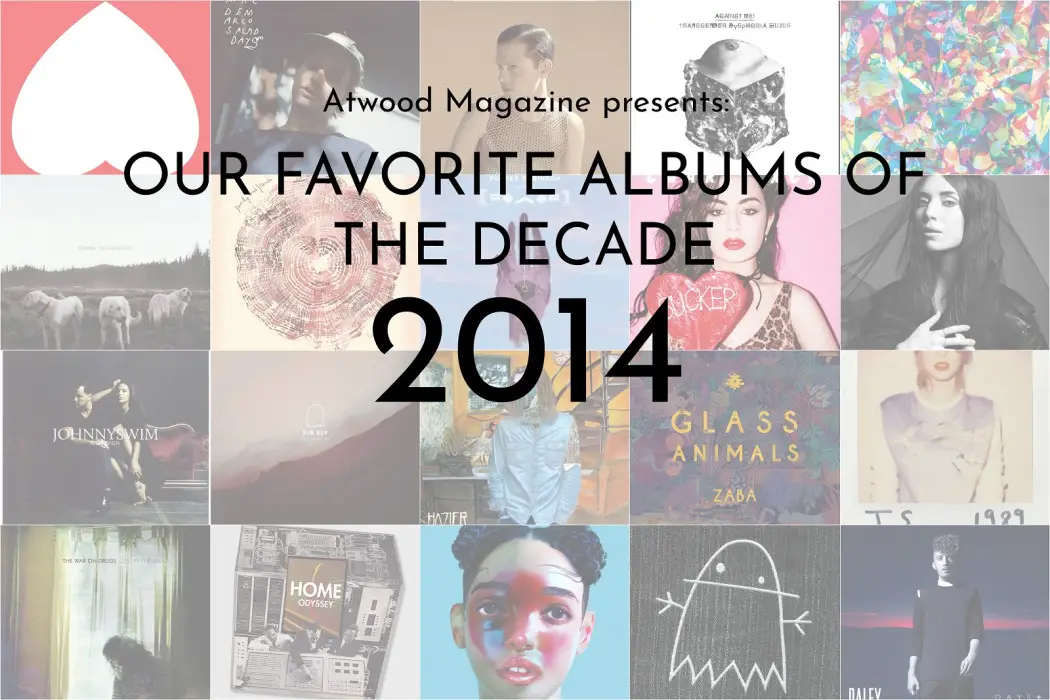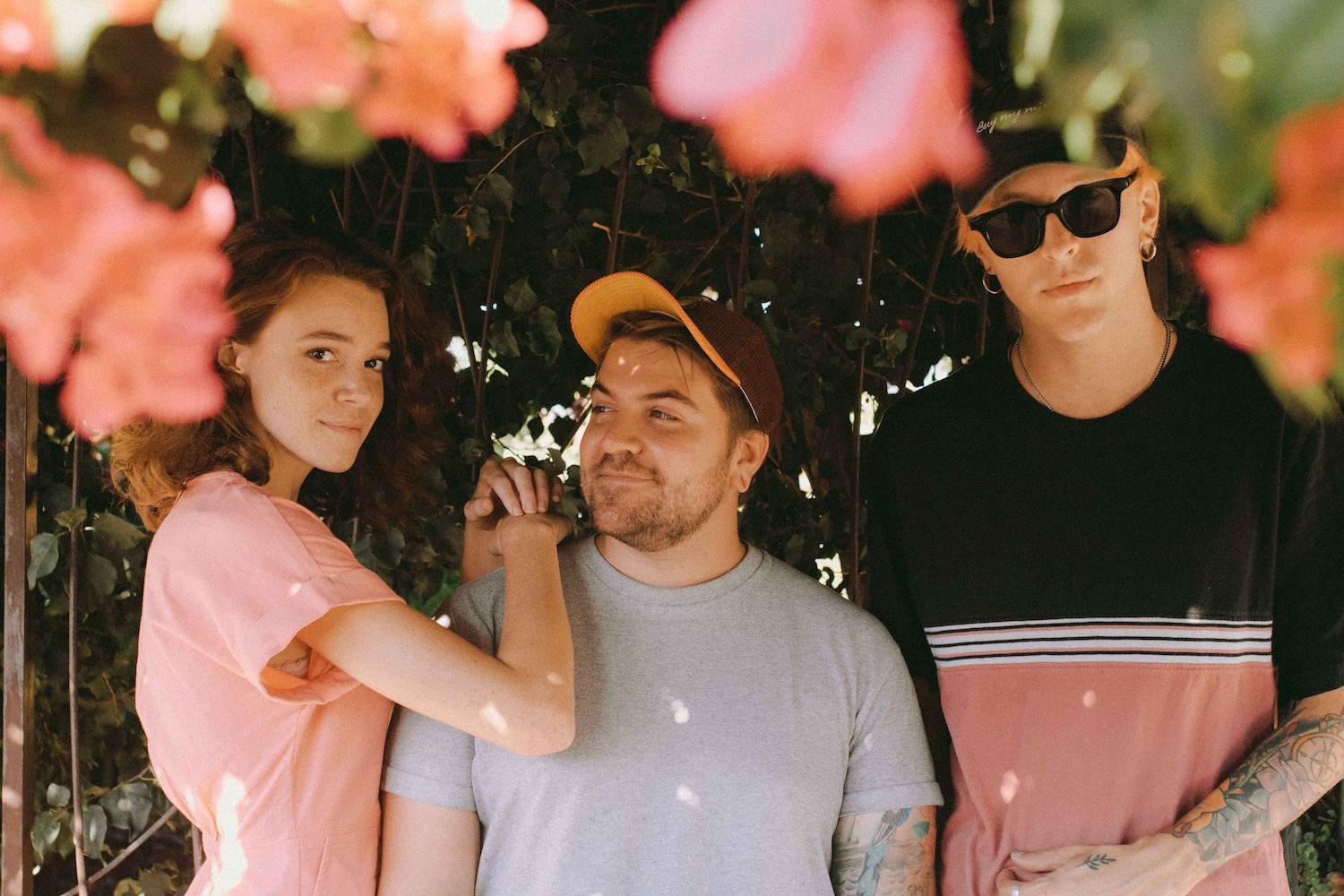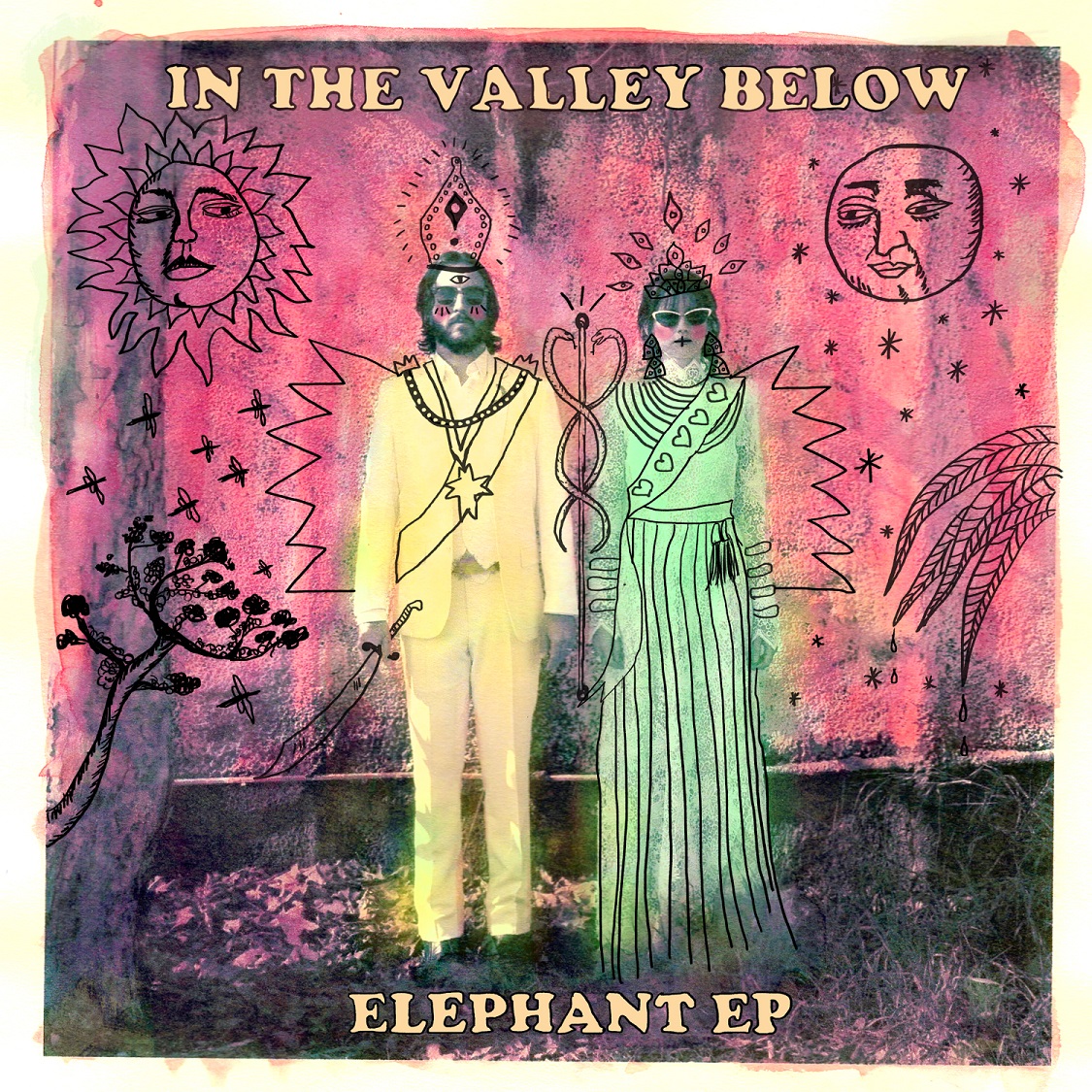Sir Sly HOME The Gaslight Anthem Johnnyswim Taylor Swift Hozier Glass Animals Against Me! Charli XCX Jukebox the Ghost Daley Mac DeMarco FKA Twigs Family and Friends Perfume Genius The War on Drugs Caribou Porter Robinson Foxing Lykke Li
The 2010s are coming to a close, and with them ends an exciting era of musical innovation and societal transformation. The past ten years have seen the breakdown of genre, increased accessibility for content creators, and new modes of access for music consumers. Downloads bowed to streams in the West, and artists like Justin Bieber, Drake, and Taylor Swift rose to international superstardom – but this is just the tip of the iceberg of a busy, busy age; it seemed like the more connected we were, the more disconnected we felt. Music was a means of transcending distraction and hardship; a vessel of understanding that lent us stability for moments of stress and doubt.
How better to capture a decade in music than in the words of those who lived it and breathed it? Atwood Magazine is proud to present Our Favorite Albums of the Decade, in no particular order (you can jump directly to an artist by clicking their name above, and return to the top of the page by clicking any album art below). For ten weeks, our writers will be breaking down the music of the 2010s year by year. These are the records that shaped the people we are today: The music that carried us through pivotal milestones, the songs that together form the soundtracks to our lives. We have grown and changed, matured and evolved, but in this time of reflection, we can still feel the sense of wonder we felt as listeners pressing “play” for the very first time.
This week we celebrate 2014 in all its epic wonder: From the transformative pop magic of Taylor Swift’s 1989 and Glass Animals’ ZABA, to Hozier’s moving self-titled debut, Against Me!’s Transgender Dysphoria Blues, FKA twigs’ LP1, and more.
Mitch Mosk, Editor-in-Chief
— —

 Our Favorite Albums of the Decade
Our Favorite Albums of the Decade 
Our Favorite Albums of 2014
Sir Sly had an indelible impact on my young twenties, personally teaching me about the depths we can reach through music while inspiring me to continue down my journalistic editorial path. Their debut album is a heartfelt and intimate upheaval full of grief and longing. “You Haunt Me is a dark and mysterious masterpiece,” wrote an excited Mitch Mosk five long years ago. “Sir Sly carry with them a distinctive sound fused from a plethora of musical influences… As children, we are taught to not use a word in its own description, but You Haunt Me is nothing short of haunting.”
Tracks like “Gold,” “Ghost,” and “You Haunt Me” (an upbeat song about addiction) got stuck on repeat thanks to their easy, instantly memorable melodies. While they served as a nice hook to the album, the real sinkers lay in Sir Sly’s slower, darker content. Opener “Where I’m Going” (all of my love was wasted on you) helped set the scene, creating the sensation that we were falling into something heavy and in a way, larger than ourselves. “Found You Out” ached with the stain of betrayal (a taker and a giver, I guess I found you out). Yet ultimately, it was the transformative two-part bookends “Nowhere / Bloodlines Pt. I” and “Helpless / Bloodlines Pt. II” that struck me breathless. “Those two might be the most vulnerable, both musically and lyrically,” Sir Sly drummer and songwriter Hayden Coplen noted to me. He wasn’t wrong; these titles find Sir Sly at their emotional peak, tapping into a raw, turbulent sonic core free of genre and pop structure. “I don’t think any of us wanted to make a record that was appealing as much as we wanted to make a record that was important,” Sir Sly frontman and principal songwriter Landon Jacobs told me at the time.
For Sir Sly, music was and has always been about connecting to others through meaningful lyrics and substantive conversation. “Those are the comforting things about music when you’re growing up. You’re hearing this person, who gets to play music on a big stage, talk about things that have really shaped them or hurt them, or whatever it is – made them feel elated – and you feel a little bit less alone with whatever you’re going through,” Jacobs said. “[It’s true] especially for growing up in suburbia, where you’re not close to a lot of things. You don’t see a lot – you mostly see empty space, so you feel very alone and isolated. Music, for me, was a way to feel connected to something bigger, and I think I’ve always kept that. That’s why honesty is so important in writing music for me continuously. Anybody who listens to music, I want them to have the same access to those feelings that I had when I was younger.”
Sir Sly excelled at bringing beautifully haunting emotions to life through song. You Haunt Me is an exceptional display of connection that remains as powerful and refreshing today as it felt five years ago. I meant it then, and I’ll say it again now: “Dark and stormy yet musically challenging and unique, You Haunt Me is a work of art.” – Mitch Mosk, New York
https://www.youtube.com/watch?v=weqOtg0jbm8
For my late nights and dreamy days, I always want to put on music that will capture the mood and take me on a voyage. With an album name like Odyssey, HOME became my obvious pick for ethereal, electronic-laced escapes. The synth productions are vibrant and anthemic—providing the album with an aural experience that, to this day, no other synthwave project has been able to duplicate nor match. Synth and ambient collide with the first track, “Intro,” to make a chillwave tune that relaxes and resets one’s own mind. Everyone starts from scratch when listening, each of us beginning our journeys at the same place. How we proceed is, of course, left up to us.
“Native” adds a sonic flair that provides momentum for listeners—creating a head-bopping experience from start to finish. With the title track, “Odyssey,” it’s broken into phases, each providing their own flair and melody that radiates a celestial undertone; one of the most memorable tracks on the album and of the year. “Resonance,” as made popular by a Vine, is dreamy and airy, floating around the headspace of listeners and capturing them with the synth-laced twinkles and drum machine beats. Simply put, there’s no better album to put me in a state of harmonious bliss than Odyssey. – Adrian Vargas, Seattle
Get Hurt
by The Gaslight Anthem
The great strike against The Gaslight Anthem has always been that they’re Springsteen-lite. While not completely untrue, it feels like a weird attack for two reasons: Firstly, don’t all rock bands either sound like the Beatles or Springsteen? And secondly? Their material absolutely kills. From their raw debut Sink or Swim right through to their fina Get Hurt, it’s just heartbreak and distortion all the way. At times hard-hitting, at other moments sickly-sweet, it’s all raw and authentic.
Where Get Hurt differs it that it leaves all pretense of Springsteen behind: From the introduction of a third guitarist to the raw bombastic drumming, it’s Pearl Jam all over. And yet somehow still distinctly Gaslight Anthem.
Tender moments still abound, Fallon’s rugged croon is as pained as ever, and the fuller sound creates an inescapably, ear-catching wall of sound. This new biting direction suited them well. While tragically their last album before going on hiatus (please come back to us soon) it cemented them as a band here on their own merit, not just riding the back of their state-mate.
While arguably not their best album — that’s like choosing your favorite child, am I right? — this 2014 offering captures The Gaslight Anthem showing off their diverse talents and their classic ability to simultaneously rock and fall apart. – Oliver Crook, Halifax, Nova Scotia
Johnnyswim’s debut album, Diamonds, was released in 2014. This is an album that can compete with the most beautiful and powerful albums of the decade. Built with love and life, Diamonds, is jam-packed with the most romantic ballads such as “Take The World” and “Paris In June.” Heartbreak is sprinkled in with songs like “Closer” and “Over.” But more than ever, a reckoning for those who doubted them, so appropriately placed in this album that put them on the map with “Home,” “Diamonds,” and “Pay Dearly.”
You’ve taken down
So many others
Oh but you’ll know my name when you see
And in these ashes I’m stronger still
You’ll learn to feel my pain, yeah you will
Johnnyswim gave absolutely everything they had to this 12-song debut. To this day songs like “Home” are fan favorites and the most special moment of their live show. They’ve only continued to grow musically and in success, but Diamonds, will always hold a special place in the world that is, Johnnyswim. – Kelly McCafferty, New Orleans
Red (2012) marked the beginning of a transition period for songstress Taylor Swift, who stepped into uncharted territory by exploring a new sound, pop leaning, yet stayed true to her country roots. It was with 1989 that she fully immersed herself into that world, and became an established pop princess. Leaving behind the resented ex-girlfriend, heartbroken girl image, Swift embraced her power as an individual and stood up against her detractors, starting with “Shake It Off”, an anthem to self-love about how, ultimately, you cannot control other people’s actions and so they should not affect your life.
A tinge of sarcasm is present throughout the album, with songs like “Blank Space,” where she mimics the caricature of herself that is painted by the media. Swift becomes a whole new character, pushing her boundaries in a pleasantly surprising way. However, she made sure to also show her most vulnerable, real side that she was loved for in the likes of “Style,” a fusion of elaborate storytelling and evoking imagery, and “This Love,” a classic romantic ballad.
Merging witty lyricism with well-crafted melodies that let her country beginnings shine through, 1989 became the start of a new era for Taylor Swift, and era that has seen the artist step out of her comfort zone, experiment with new sounds and flourish as a skilled songwriter who continues to grow with each album she releases. – Alicia Bugallo, London
Whenever people equate any kind of modern-day writer to Shakespeare, there tends to be a pessimistic fuel that’s added to the fire that is the discussion about people who should or shouldn’t make the list of lyrical legends and iconic storytellers. However, in 2014, when the indie-rock-blues song “Take Me To Church” went global across the airwaves, there weren’t many people objecting to Irish singer Hozier’s talent for songwriting.
Growing up the son of a local blues musician, it’s no surprise that the soulful musician has forged his own path in the time since his single graced mainstream radio. His self-titled debut album, Hozier, was released in September and stayed in the top ten in Ireland, the US, the UK, and Canada. The album’s lead single, “Take Me to Church” won global praise. The line “She’s the giggle at a funeral,” might have been one of the most notable metaphors released to radio in 2014 and remains now an incredibly adored lyric. The song earned a nomination for Song of the Year at the 57th Annual Grammy Awards in 2015.
No masters or kings when the ritual begins
There is no sweeter innocence than our gentle sin
In the madness and soil of that sad earthly scene
Only then I am human
Only then I am clean
It doesn’t take long for dedicated music listeners to listen to Hozier and realize that songwriting might be his greatest forte. With a voice that pierces through the air, so captivating you can’t help but put in a little bit more effort to listen, the singer fuses rock riffs from electric guitars together with layered organs and heavy piano chords that bring a uniqueness to the record. It left mass amounts of people wondering if this kind of crossover sound has ever made its mark so prominent in popular music. Perhaps, not.
Many fans of the singer-songwriter latch on to his specialty for anthems about perseverance and doubt, and his ability to bring his lyrics to life with the powerful musicality he places behind them. Often compared to Van Morrison, Jeff Buckley, and Bon Iver, the success of Hozier and the loyal fan base it created proves the singer’s artistry in its own, unparalleled way. Before the decade comes to a close, I’d just like to say it now – Hozier’s the writer who brought Shakespearean lyricism back to mainstream radio in 2014, making it a year for indie rock to remember. – Erica Garcia, Los Angeles
From the moment Glass Animals’ debut album opens, it’s clear to anyone listening that they’re entering another dimension. ZABA is a brave new world full of unfamiliar sounds and ambient grooves: Its heavy beats and tropical textures are offset by cool keys and Dave Bayley’s own sweet voice, resulting in a perfectly balanced triumph of musical abstraction.
Is it psychedelia? R&B? Trip-hop? “Indie electronic”? ZABA confounds listeners trying to give it a singular label or description, quite simply because it exists outside the bounds of genre as we once knew it. The 2010s saw, in so many instances, the destruction of genre, and Glass Animals have always been at the forefront of that surge. Yet ZABA‘s brilliance doesn’t come from its inability to be explained with small words and short sentences. Rather, Glass Animals’ first record shines thanks to its provocative depths and expansive, immersive sonic wonder. The record harnesses a perfect mesh of electronic and analog instruments to dwell in deep caverns that feel somehow distant, yet intimately close all at once.
In speaking with me in 2016, the band explained just how much time they spent obsessing over every single movement and every single moment on ZABA. This dedication is immediately obvious from the outset, as opener “Flip” engulfs us in its hypnotic, swampy atmosphere. “Black Mambo” seals the deal with its unnervingly catchy groove and heated mood. My personal favorite moments have always been the back-to-back songs “Pools” and “Gooey,” two utterly dazzling tracks full of intoxicating sounds and mesmerizing lyrics. “Pools” feels like an exotic burst of euphoria; its joy is infectious, spreading light from Glass Animals’ funky instruments directly to listeners’ ears. Meanwhile, “Gooey” is a sexy, sinister enchantment whose poetry could be studied ad nauseam:
Right my little pooh bear, wanna take a chance?
Wanna sip the smooth air, kick it in the sand?
I’ll say I told you so but you just gonna cry
You just wanna know those peanut butter vibes
My, my simple sir, this ain’t gonna work
Mind my wicked words and tipsy topsy slurs
I can’t take this place, no I can’t take this place
I just wanna go where I can get some space
ZABA is a mystery and a gift, a brooding groundswell of cleansing energy intended to take listeners on their own individual journeys. Spellbinding and one-of-a-kind, Glass Animals’ debut continues to radiate its own eclectic glow as a truly phenomenal, standout artwork. – Mitch Mosk, New York
Transgender Dysphoria Blues
by Against Me!
Laura Jane Grace told the world she was trans in 2012. She also announced that she’d been working on an album based around her experiences with gender dysphoria. While there’s still a lot of transphobia that needs to be addressed in the punk scene and the world at large, Transgender Dysphoria Blues was a massive moment where a band that’s always stood just outside the mainstream and is as large as an underground punk band can be urged their audience to learn about experiences that may not be their own and strove towards acceptance. It’s hard to hear a song like “Paralytic States” and not feel like you have an immediate understanding of what Grace was going through transitioning publicly. She also uses her lyrics wisely, throwing in transphobic voices that she has to wrestle with hearing both in her own head and elsewhere. She mixes lines like “You’ve got no cunt in your strut” with a powerful chorus of “You want them to see you like they see every other girl” is a perfect encapsulation of her mindset while transitioning, but it’s so plain and relatable that even cis people can relate.
Grace writes about her experiences in a way that’s catchy and plainspoken. Mixing slurs that make most levelheaded people cringe helps put the listener in her head, while also fusing it with her own words of empowerment. It has a push and pull to it, that makes the album incredibly honest in a way that most pop-punk records are not. “Black Me Out” closing the record is both self-deprecating and empowering. She sings about how she feels whored out by the music industry but also vows to piss on the walls of it. In a record that shares an inner monologue and asks for validation, the most validating part is the “fuck off” that comes at the end. – Jimmy Crowley, New York
By the fourth quarter of 2014, Charli XCX had scored monster hits such as “Fancy,” “I Love It” and “Boom Clap,” but had yet to release a successful solo album— her official debut, True Romance, had largely passed under the radar the previous year. Such a mixed rate of success put the pressure on her sophomore effort, Sucker, to deliver upon its release on December 15th.
And deliver it did: this album proved to be the most irresistible party of the year. Lead singles “Boom Clap” and “Break the Rules” sang the praises of the heedless lifestyle defined by “going to the discotheque, getting high and getting wrecked” and the album cuts only built on this momentum. “When I’m driving on the wrong side of the road, I feel like JFK, ya know?!” Charli belted on “London Queen,” before shifting to singing about crashing parties (“Famous”) and drowning in her own wealth (“Gold Coins”). There was no social standard the British pop star felt the urge to abide to— but she certainly had lofty standards when it came to production, as Stargate, Benny Blanco, and many others were called upon to craft some scintillating power punk that complemented her singing quite well. By the end of the day, there was no question which singer had stolen the throne as Rookie Pop Queen of 2014 with only 16 days of the year to spare. – Josh Weiner, Washington, DC
Jukebox the Ghost
by Jukebox the Ghost
The pop music machine seems bent on taking the artist out of the equation more and more as time goes on. Record producers have reduced songwriting to an algorithm that churns out pop hits with the right hook, length and sheen to bait radio programmers who in turn shove them down our throats. It’s no wonder that many of the Top 10’s that populate the airwaves sound like cookie-cutter clones from the Max Martin playbook.
Thankfully, not all pop music has fallen down the proverbial rabbit hole. For their fourth album Jukebox the Ghost, DC power pop group Jukebox the Ghost proved that catchy music doesn’t have to come at the expense of artistry. Though they’ve flirted with the bubblegum fringes of indie pop in the past, it’s here on their first self-titled release that they finally let themselves go. Pianist and lead singer Ben Thornewill delves into anthemic territory, crafting love songs and self-affirming manifestos that are as fun to snap your fingers to as they are to ponder. Whether it’s the bristling opening number “Sound of a Broken Heart” where unrequited love has never sounded so enticing, or the Tinseltown throwback of “Hollywood,” it’s a glorious ascension for the band and a wondrous artistic statement for pop music as a whole. – Anthony Kozlowski, Los Angeles
For his debut album, British R&B powerhouse Daley held no punches. The album, entitled Days & Nights, came out at the top of the new year, and came out swinging. An active musician since 2010 whose collaborations include the likes of Jessie J, Gorillaz, and Marsha Ambrosius, Daley had early on solidified himself and his natural musical prowess, and Days & Nights only further aids in proving just how enchanting he truly is.
Days & Nights holds its magic within its pure R&B goodness, as Daley’s inimitable range — particularly, his falsetto — shines at the fore. The album feels universally appealing thanks to Daley’s unique voice feeling wholly approachable, easing in and out of each song with grace.Throughout the album, Daley’s knack for R&B and soul sensibilities is unmistakable, as he seamlessly moves between love and heartache, pain and growth, acceptance and resentment. The orchestral arrangements that supplement each song are cinematic and grandiose, complementing Daley’s powerful vocals flawlessly. Days & Nights firmly planted Daley as a force to be reckoned with, a matchless talent of whom we should all take notice. – Maggie McHale, Philadelphia
A pivotal moment in music took place when the term “bedroom pop” began to sprout and was used to describe a wave of new artists who recorded and released songs straight out of their bedroom. One of the biggest figures to launch this era was Mac DeMarco and his album Salad Days, recorded entirely in his Bed-Stuy apartment in Brooklyn, New York, was a central part of it.
DeMarco’s distinct guitar stylings used in his previous album 2 could still be found in tracks like “Blue Boy”, “Brother”, and “Go Easy” and while they’re layered with the same nostalgic tones that feature a modern twist, they were now more refined in production and honed in subject matter. With Salad Days, DeMarco set to make a more personal record lyrically, writing songs like “Let My Baby Stay” and “Treat Her Better” about his still girlfriend Kiera McNally. While he used this record to dig deeper into his psyche, the song “Chamber of Reflection” being about reflecting on what one has done in their life already and then moving on from it, his slacker rock manner is still affixed to it and his lack of perfectionism is what’s kept it endearing. – – Shayna Chabrow, New York
Tahilah Barnett came on the scene, through a diamond sheath, with her debut album LP1, in 2014. She had released two EPs in 2011 and 2013 but LP1 was the beginning of FKA twigs as she is commonly loved and received. While the genre itself and common notions of electronic pop were in full swing, twigs had something none of the others did; earnestness. Encapsulated in dramatic overtures, hypnotising beats, and off collar sex appeal, was a woman being completely vulnerable. “Break or seize me. Let the things that I tell you survive, in the way that you handle your size. Never leave me. When I trust you we can do it with the lights on.” Of course the aforementioned lyrics are dipped in the allegorical context of twigs’ subjective conscious. At their core though, the lyrics are simpy stating if you can handle me please stay forever and I’ll reward you with unabashed trust. twigs takes it one step even further by adding a cheeky undercurrent of seduction. “I’m your sweet little lovemaker” and “I could kiss you for hours.”
These accolades alone barely scratch the surface of all facets of twigs’ artistic capabilities. She is also a trained dancer, who manages to incorporate those skills into all visual counterparts to her music. FKA twigs has set the precedent for a unique, powerful force in music, and more specifically defining what it means to be completely ‘holistic’ in the art she is making. To this day I still get chills whenever “Video Girl” comes on.
Love You Mean It
by Family and Friends
It was 2014, on a rustic and awe-inspiring autumn drive through the New York mountainside that I fell in love with Family and Friends and their debut album Love You Mean It.
Based in Athens, Georgia, Family and Friends is exactly that – a very connected clan of good people who play rootsie-folk-rock “party in the parking lot” music together. Their upbeat sunshine bright sound balanced magnificently with heart and harmony filled lyrics turned our sorta fun road trip into a rolling, bonding, hollerin’ hootenanny.
And there’s a song in my heart
When it sings, oh, it sings for today
And so did we. – Ilana Kalish, New York
2014 was a great turning point in Perfume Genius’ career. The American singer-songwriter released his third studio album just over five years ago, but the intoxicating selection of songs has stood the test of time: half a decade later, Too Bright has not lost any of its shine. Recorded with Portishead’s Adrian Utley, and fully deserving of all its critical acclaim, the record features eleven tracks extending over an impressive range of genres. The eccentricity and diversity is kept under control in the firm hands of Mike Hadreas, an artist with a keen eye for detail as well as a remarkable capacity for comprehensive production: the lustrous pop tunes and polished aesthetics tie the songs together into a glistening ensemble worthy of its name.
But Too Bright is more than glam and glitter. Behind the surface glow is a complicated (and still unfinished) coming-of-age story, reflected in the ideas of excess and fragility inherent in the brilliant title. Hadreas tackles fundamental human questions – identity, fear, reconciliation – with unadulterated honesty, and lets go of the crippling pressure to be perfect. The freedom and strength he finds this way is what makes this album truly radiant. – Ditta Demeter, London
Lost in a Dream
by The War on Drugs
F power. – Jon Hecht, Arizona
Dan Snaith’s, dit Caribou’s, Our Love is steeped in a back to basics tradition—it’s neither outwardly flashy, nor ostentatiously loud — while incorporating hip-hop and R&B sensibilities, instrumentation oscillates cut to cut from minute stenographic drum machines to iridescent keyboard chord progressions to opaque violin phrases.
The instrumentation is condensed, but the application is thorough, nothing is contained to one track, nothing pairs or repeats twice. If vocal samples are carried through, then time signatures are changed, violins are reduced to auxiliary variables, songwriting becomes function building. On Our Love, Snaith is not one to tell stories, he solves equations. And the songs are his proofs. What equation is he solving? Subconscious manipulation. With what input? Coursing synthetic undertows. And to what output? Compulsion to dance. The non-savvy might wonder why one wouldn’t simply call this intellectual dance music; clearly, Snaith is making music with almost psychoanalytical precision as to be scary, but that’s not the point. Snaith’s ability to leverage violins, R&B vocals and hip-hop clapbeats is not indicative of “smart” music, it’s indicative of creatively balanced music well worth listens and interpretive movement.
Here the writer must impose himself upon the subject — he has never used this record to dance, nor has he used Caribou to purport his egotism re r/iamverysmart — because he has used this record to sleep. Our Love was never about the shimmering, voluptuous synthesizers or the brilliant keyboard progressions, but a warm key sonic: the low frequency percussion. As it throbs against the limiter on low, Our Love, can transform in purpose from a highly active form of music to a greatly comforting one. The slow, pulsing, living heartbeat blankets the mind, an Om chiming the tired spirit to sleep. Yes, Our Love is a club, but Our Love is also a home, Our Love is a mantra, Our Love is peace. – Ben Niesen, Pacific Northwest
Porter Robinson did more than create an album with Worlds, he created an immersive, all encompassing universe. Robinson successfully fuses cherished pieces of electronic dance music with electro pop sensibility on Worlds. The album consistently evokes the nostalgia of well-loved video games and a love of Japanese culture, as well as the euphoria of dance music in general.
While the triumphant sounds and lyrics on “Years of War” stand in contrast to darker, slightly more gritty “Polygon Dust” further down the album, none of the tracks seem to be at odds. The themes of rejoice and connection are evident throughout, particularly on “Hear The Bells,” “Lionhearted,” and “Flicker,” but the persistence of loneliness is present, too.
You’d fit perfectly to me, we’d end our loneliness
Melt this curse away
Though I’ll never know your name
I’ve cried for you the same
A love letter to a soulmate he’ll never meet, “Fresh Static Snow” points out that as much as Worlds is an ambitious and relatable work, it’s a deeply personal one as well. Robinson’s affinity for Japanese culture, anime and of course, electronic music, are the foundation for his debut album as well as the accompanying tour and its visuals.
The Worlds live show was arguably as influential as the album itself, and decidedly left a clear mark on the industry of live electronic sets. The show completely involves the viewer, featuring live vocals from Robinson, incredibly immersive visuals tailored to each song and the undeniable energy of an enthralled crowd.
Who survived? Somebody new?
Anyone else but you?
On a lonely night was a blinding light
A hundred leaders would be borne of you
There’s no doubt that while Worlds may not be the most innovative album, it came at a perfect time for fans of electro pop as well as the more industrial shapes of electronic music. And it will live on as one of the more moving electronic debuts in recent history, breaking from the mainstream and shining a light on both tradition and personal experience. – Alex Killian, San Francisco
On my 21st, I took a trip to Atlanta to see the band Foxing. I was with my best friend, Jake, and three days prior, my girlfriend at the time of two years broke up with me. I saw Foxing at a small venue called the Drunken Unicorn. Jake and I had our chest right against the barrier. This was my second time seeing the band. They were the middle act. Foxing, for me, in 2014, was a band I looked to for emotional healing. They had just signed on with Triple Crown Records, and remastered their first album, The Albatross — an album cascading with drenched metaphor and imagery of loss and self-acceptance. I was experiencing this and needed it.
The album’s quintessential song is the middle track, “Rory.” Foxing’s front man, Conner, belted the chorus right in mine and Jake’s face,
“So why don’t you love me back?”
just before falling back and exclaiming all the pent up emotion that balloons the entire song, that ballooned in myself and Jake on the long drive from southern Alabama to north Georgia, by matching notes on his trumpet. Foxing is my favorite band. And The Albatross is my favorite album. – Aaron Scobie, Omaha
I Never Learn is dancing in the rain. It’s sitting in a sweater trying to regain warmth. It’s gazing up at the stars, waiting for the sun to rise again. It’s a makeshift house of glass that can crack at any given moment, where all those with lonely hearts can stay awhile until they can pick themselves up and soldier on. From “No Rest For the Wicked” to “I Never Learn”, the Swedish songstress tells a story of hopelessness and despair that flows out of her with ease. Each song floats along in a sea of dreamy reverb, whether they’re cascading into echoes of melancholy such as with “Silverline” or weeping declarations of finality on “Never Gonna Love Again.”
Lykke Li is at her best when she makes music you can cry to. With I Never Learn, her delicate voice breathes out her pain, flourishing alongside melodies so somber they strike you in the cracks where you didn’t think music could creep into. On I Never Learn, Li leans into her isolation and succeeds at translating her sadness into something so palpable, one can only be overwhelmed with emotion for it to resonate fully.- Natalie Harmsen, Toronto
 Our Favorite Albums of the Decade
Our Favorite Albums of the Decade 
— — — —
Connect to Atwood on
Facebook, Twitter, Instagram
Discover new music on Atwood Magazine









